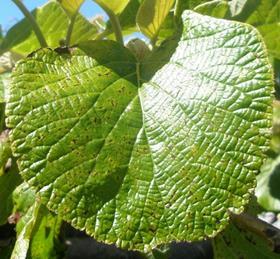
New Zealand kiwifruit cooperative Satara has told its kiwifruit growers in Te Puke, the zone worst-hit by kiwifruit vine disease Psa, not to invest in new cultivars being offered by marketer Zespri International, and advised growers outside the Bay of Plenty to hold off toodue to the high risk of importing the bacteria into their area on new cultivar graft wood.
Satara managing director Tom Wilson told growers the risk they were taking on meant they should pay nothing for the Zespri new cultivar licence, reportsThe Bay of Plenty Times.
Mr Wilson said Psa was the most significant event the industry had faced since the collapse of the Kiwifruit Marketing Board in the early 1990s.
'There is clear evidence that some growers, packhouse operators and contractors in the industry will financially fail as a result of the Psa crisis,' he said.
But kiwifruit giant Zespri International has hit back, saying growers were commercial business owners and any new variety licensing decisions should be made at the orchard level, not 'industry-wide'.
Zespri said no graft wood would be taken from the Te Puke area and there were strict controls in place for orchards where graft wood could be taken from, such as the orchard having to be tested for Psa.
Zespri plans to make a decision later this week about which new variety licences will be made available for interested growers, the report said.
Last year, 556 growers from Zespri's stable of 2,700 were licensed to grow three new kiwifruit cultivars on 600ha of land. The licences provided 200ha for the gold3 cultivar, 250ha for gold9 and 150ha for green14.
Earlier this year Zespri made a commitment to releasing at least another 200ha of one or more varieties and say the decision will be made in the context of market demand, industry growth strategies and Psa.
Psa vine disease was discovered in New Zealand last November. It has since been found in two strains, with the most virulent type, Psa-V on 122 of the 189 Psa-infected orchards around Te Puke.
Psa-V is spread by wet, windy, warm weather and by the movement of plant material. T
A total of 239 orchards on 747ha were listed as infected earlier this month - including sites in Franklin, Hawke's Bay, Katikati, Poverty Bay, Tauranga, Whakatane/Edgecumbe, Waikato, Golden Bay, Horowhenua and Motueka.



